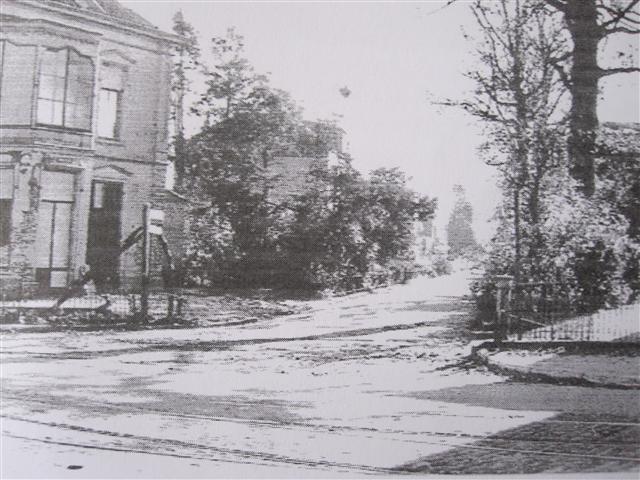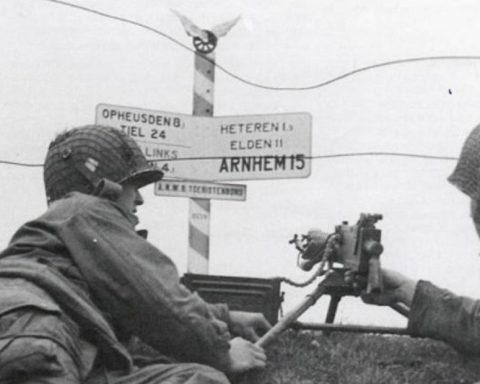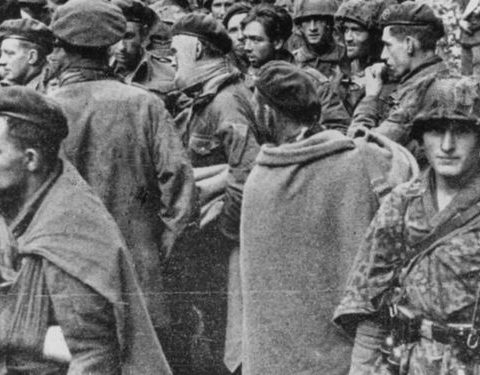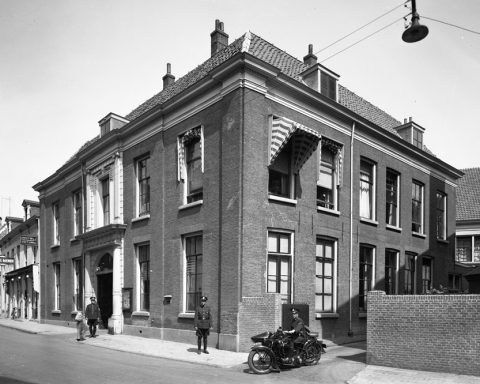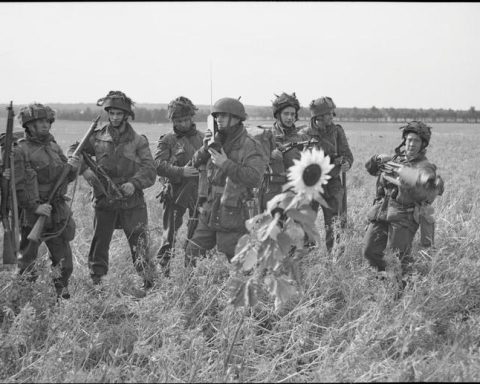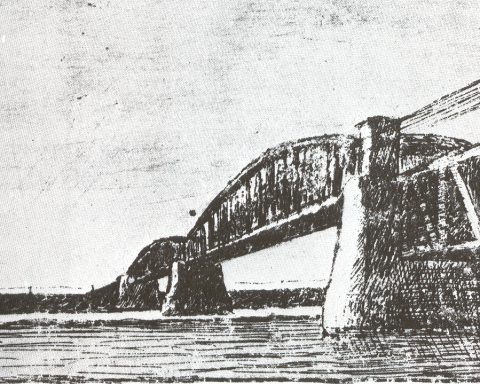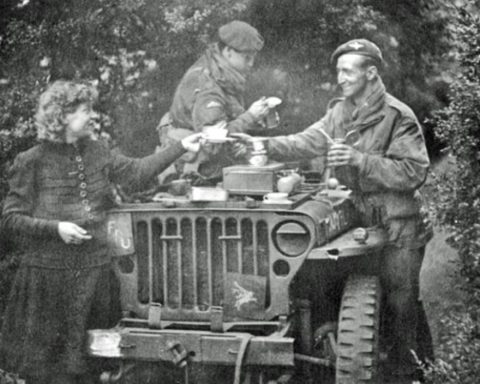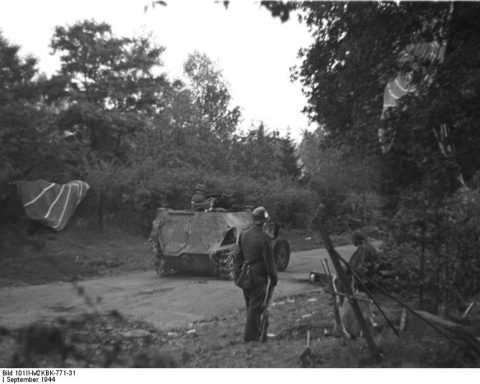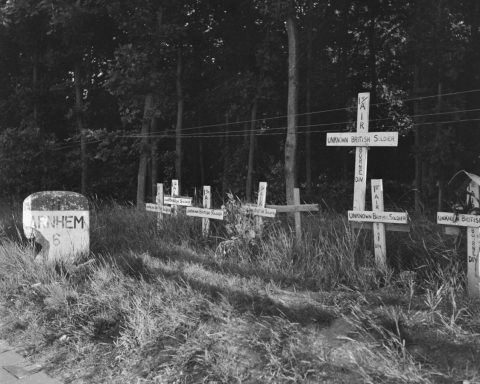The 10th Battalion, led by Lieutenant Colonel Kenneth Smyth, had suffered very heavy losses in the fighting to reach the Rhine Bridge. Almost all soldiers of the 10th Battalion were killed, wounded or captured.
By late afternoon on Tuesday, September 19, Colonel Smyth had only 60 soldiers left. In Oosterbeek he and the remainder of his battalion occupied several houses on the corner of Utrechtseweg and Annastraat to defend the western access to the British perimeter along Utrechtseweg.
On Thursday, September 21, during a major German attack with tanks and mortars, the remainder of the 10th Battalion was also destroyed. The British initially managed to repel the German attack. After the Germans launched a new attack, firing a self-propelled cannon from a concealed position at the British houses, the British defense collapsed.
Mrs. Bertje Voskuil lived at Annastraat 2 in Oosterbeek. After the war she reported meticulously on the battle. Mrs. Voskuil hid in the basement of her house. Her report, which is included in Martin Middlebrook’s book ‘Arnhem’, is reproduced in its entirety below.
“They brought Major Peter Warr down and laid him on the floor in front of me. I was sitting on the couch with my son. Peter Warr had been hit in the thigh and was in severe pain. Sometimes he would lose consciousness and when he came to, he would grumble and swear. He had every reason to do so. I remember him saying, “I could kill for a pint of beer.”
They then brought Colonel Smyth down. He was seriously injured. He too was unconscious from time to time. When he was conscious, he kept asking where he was until he disappeared again. I tried to explain to him where he was, that he was in Holland, in Oosterbeek, and that it was war. However, he didn’t understand it. I think he was hit in the stomach. He lost a lot of blood, but it was so dark in the basement with that one candle that you couldn’t see it well.
Then I heard them fighting in the house above us. I heard shots and screaming. They made all kinds of noises when they fought, sometimes it sounded almost animalistic. Then the door was kicked in and the Germans entered. A tall British soldier jumped in front of me and Peter Warr, with his back to the Germans. I don’t know if he was trying to protect us.
There were two loud explosions. German hand grenades. The British soldier was hit in the back and fell forward, over me. He was dead. Many of the people in the basement were injured. I was hit in both legs and my hearing was affected, and still is.
The explosion blew out the candle. I felt on the floor to see if I could find my son. He was nine years old and sat next to me on the couch. I felt him, he wasn’t moving and there was a lot of blood. I thought he was dead, but he was still alive. He was injured in the stomach and face by splinters. The next morning he regained consciousness. Luckily he made it.
My husband was hit in his hand and his knee. Major Warr was seriously wounded again, this time in the shoulder. He was struck when he stood up as the Germans entered and shouted to them that he and his men were surrendering.
It was quite an uproar. It’s amazing what a throat people can develop under such circumstances. A German officer called to me: ‘Do you speak English?’
I said yes and then I had to quickly translate and tell the English that they had fought bravely and that they had to hand over their weapons, helmets and ammunition, as well as their watches and identity papers.
I asked if someone could take the soldier’s body away from me because he was completely bleeding me. I later had to throw away the suede shoes I was wearing because I stood in a pool of blood on the floor. Not far from me sat a British soldier with a rifle, but he was so nervous that the butt rattled on the floor.
When things are this bad, you quickly get over your fear. I was unfazed as I translated for the German, even though I thought my son was dead. Perhaps I was in despair, because the year before I had lost my youngest son to a blood disorder.
Lieutenant Colonel Smyth regained consciousness and wanted to speak to the German commander. It came down. The man looked terrible, with a monocle on a ribbon and his hair parted in the middle. He asked me what ‘that man’ wanted.
I was so furious that I said the superior, with emphasis on superior , needed a doctor. The German officer disappeared, but a good doctor came so I believe that German officer was not as unpleasant as he seemed.”
The man who jumped up when the German grenades were thrown was Private Albert Willingham. Colonel Smyth lived another month before he died of his injuries in the Elisabeth Gasthuis in Arnhem.
There was nothing left of the 10th Battalion after the fighting at the Utrechtseweg. Only a few men had survived the fighting at the Utrechtseweg and escaped captivity.

